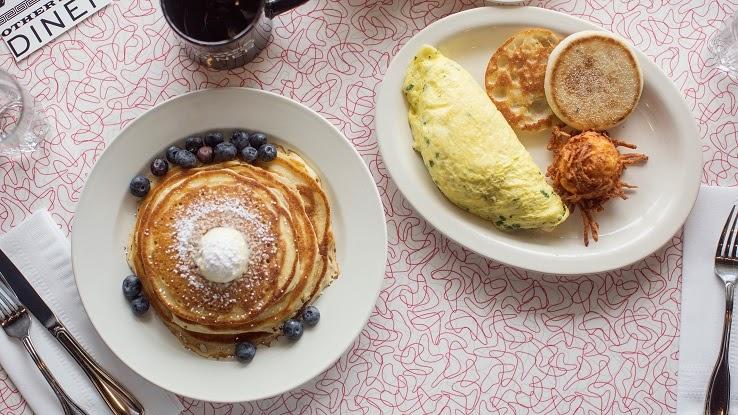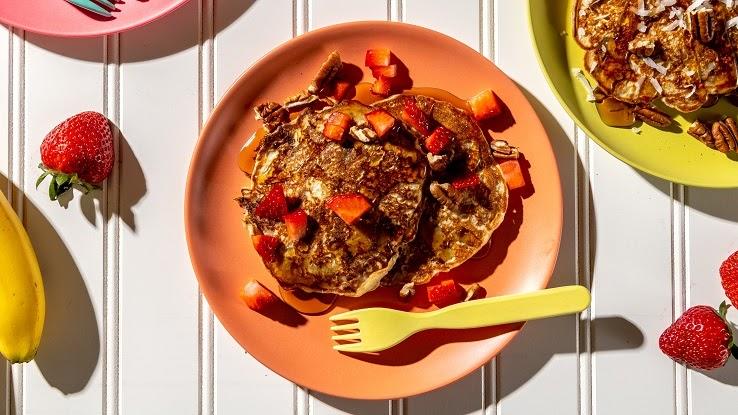
When it comes to your morning meal, grabbing a muffin, bagel, quick bowl of cereal or yogurt cup may seem like the most ideal — or at least the most convenient — choice to hold you over until lunch. But sugary, carb-laden breakfasts may not be as beneficial as we think they are, and it’s ideal to try and get more protein into your morning meal.
The hype around low-calorie, high-protein breakfasts isn’t unwarranted. Sugary, low-protein breakfasts can leave you feeling sluggish and foggy before your day even begins. On the other hand, breakfast dishes that are high in protein and low in sugar and calories can help you start your day with more energy, contribute to healthy weight management and even keep your concentration and productivity steady. If those sound like benefits you want to enjoy, check out these tasty, protein-packed breakfast options to kick off your morning the right way.
Benefits and Drawbacks of Low-Cal, High Protein Breakfasts
There are multiple benefits that can make high-protein, low-calorie breakfasts an optimal choice. For starters, early-morning protein helps keep your blood sugar levels stable and limits your hunger throughout the day, which can help you maintain a healthy weight. Protein-rich foods also contribute positively to your cognition, helping you start your day alert, aware, focused and energized. Additionally, starting with a high-protein breakfast can make it easier for you to meet your protein requirements for the day. These effects have been observed in both children and adults.

According to the American Society for Nutrition, breakfast for a healthy adult should provide at least 15% of daily calorie needs. While these numbers can vary based on your activity level, age and weight-loss goals, women generally need around 2,000 calories per day and men should consume around 2,400, notes the Academy of Nutrition and Dietetics. This means that a low-calorie breakfast should still be around 300–360 calories.
That being said, this type of breakfast is not an ideal choice for everyone. People who are underweight or nearly underweight can opt for breakfast choices with more healthy fat than protein, keeping in mind that it’s important to discuss these choices with a dietician to ensure they’re appropriate. Additionally, if you’re used to high-carb or high-sugar breakfasts, going cold turkey from them can result in a morning drop in blood sugar that may have you feeling tired until your body adapts.
Lastly, high-protein breakfasts often require a bit more time and dedication than grabbing a yogurt cup. If you find yourself pressed for time in the mornings, you may want to try your hand at waking up earlier or trying out some meal prepping ahead of time before you commit to maintaining this breakfast routine.
Ultimately, eating more high-protein and low-cal breakfasts can have numerous positive effects on your concentration, muscle health, metabolism and energy. Just remember that it’s always a good idea to discuss these choices with a doctor before you start your new breakfast routine to ensure that it’s right for you and your nutritional needs.
Protein-Rich Breakfasts on the Savory Side
Those who start the day with a classic breakfast often opt for savory dishes — bacon, sausage, eggs and toast — but not every breakfast item packs the sort of protein that many people need for energy in the mornings. Fortunately, there are plenty of protein-packed, low-calorie options for those who favor savory foods.

One dish that meets these prerequisites is an omelet. Eggs can be low-calorie, particularly if you only use the whites, and a large egg has over 12 grams of protein. Preparing an omelet from scratch gives you the chance to add in even more protein-rich ingredients, such as cottage cheese, lean meats and low-calorie veggies like spinach.
Another protein-packed breakfast option is a homemade breakfast sandwich. Preparing this dish with low-carb, high-protein bagels or bread is key. You can purchase these breads pre-made and fill your breakfast sandwich with ingredients like scrambled egg whites, feta cheese, tomatoes and avocado to ensure there’s as much flavor as there is nutrition. This dish is packed with protein, healthy fats and minimal sugar while keeping the calories lower than traditional breakfast sandwiches.
One last option is a spin on the classic breakfast burrito. To turn this breakfast favorite into a healthier, more energy-boosting option, you can utilize ingredients that are high in protein and low in sugar, such as lean turkey, egg whites, black beans, white-meat chicken and a sprinkle of shredded cheese. You can also buy carb-reduced tortillas or create your own using almond flour. With a dash of hot sauce or some pickled jalapeno slices, this twist on an old favorite might become your new go-to morning meal.
Low-Cal Dishes on the Sweeter Side
Some people prefer sweeter options for breakfast, such as cereal, sweetened bagels and yogurt. Fortunately, you don’t have to give up your sweet tooth to enjoy a breakfast that’s low in calories and high in protein.

One delicious option is a homemade yogurt power bowl. With hundreds of available ways to mix up your bowl depending on the flavors you prefer, this yogurt-based breakfast option is a great choice, especially if you like to customize your meal or enjoy something new each morning. By adding in ingredients like nuts, almonds, chia seeds and other protein-rich morsels, you’ll be able to pack a protein punch into your yogurt. Try to use plain Greek yogurt, and be careful with nuts; they’re healthy, but they’re calorically dense.
Ready for another twist on a classic? It’s one you might not expect to find on a low-cal list: pancakes. Although pancakes aren’t inherently high in protein and low in calories, you can create your own mix using almond flour or coconut flour as the base, which drops the carb levels and adds protein. Mixing a scoop of protein powder into the recipe can boost the protein content even more. You’ll want to skip the syrup on these pancakes, but replacing it with some nut butter and a pinch of cinnamon and unsweetened coconut flakes might have you forgetting all about supersweet maple syrup.
Resource Links:
https://nutrition.org/protein-its-whats-for-breakfast/
https://healthysd.gov/link_brain-foods-that-may-help-you-concentrate/
https://academic.oup.com/ajcn/article/105/6/1351/4668664?searchresult=1
https://academic.oup.com/ajcn/article/97/4/677/4576985?searchresult=1
https://chicagohealthonline.com/the-power-of-protein-at-breakfast/
https://fdc.nal.usda.gov/fdc-app.html#/food-details/748967/nutrients





